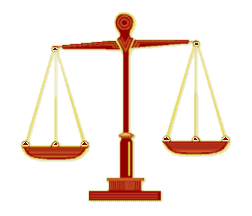Case law facts for kids
Case law means laws that are made by judges through their decisions in court cases. It's different from laws made by governments or parliaments, which are called statutes or regulations.
Imagine a judge has to decide a new case. If a similar case was decided before, the judge might look at that past decision. This past decision is called a precedent. In some countries, especially those using a legal system called common law, these precedents are very important. They help judges make fair and consistent decisions. Sometimes, a judge's decision in a big case can even create a new rule that other courts must follow later.
Contents
Common Law: Judges Make Decisions
In countries that use the common law system, like the United States or the United Kingdom, judges play a big role in shaping the law. When a judge makes a decision, especially if there isn't a clear law already, their ruling can become a new part of the law. This is sometimes called "judge-made law."
Judges in common law systems often look at past cases to help them decide new ones. This idea is called "stare decisis," which means "to stand by things decided." It helps make sure that similar cases are treated in similar ways.
In the United States, courts can even check if laws made by the government follow the country's Constitution. If a law doesn't follow the Constitution, the court can say it's unconstitutional, meaning it can't be used.
How Judges Interpret Laws
When judges look at laws made by the government (statutes), they often use different ways to understand what the law means:
- Literal Rule: They might read the law exactly as it's written, taking the words at their plain meaning.
- Golden Rule: If reading the law literally would lead to a really unfair or silly result, judges might choose a slightly different meaning that makes more sense.
- Mischief Rule: Judges might try to figure out what problem the law was trying to fix in the first place. Then, they choose the interpretation that best solves that problem.
Civil Law: Laws Are Written Down
In countries that use the civil law system, like many countries in Europe, the laws are mostly written down in big books called "codes." These codes try to cover almost every possible situation.
In civil law systems, judges still make decisions, but their past decisions don't usually become new laws that other judges must follow. Instead, judges focus on finding the correct law in the written codes and applying it to the facts of the case. They investigate the facts to understand everything that happened.
Even with many written laws, it can sometimes be hard for lawyers and judges to find every single law that applies to a case. And sometimes, a situation might not be perfectly covered by the written laws. In these cases, the court will research as much as possible and then make a decision based on what they find. Because of this, people starting a legal case in a civil law system might not always know exactly what the final decision will be.
See also
 In Spanish: Jurisprudencia para niños
In Spanish: Jurisprudencia para niños
 | Tommie Smith |
 | Simone Manuel |
 | Shani Davis |
 | Simone Biles |
 | Alice Coachman |


